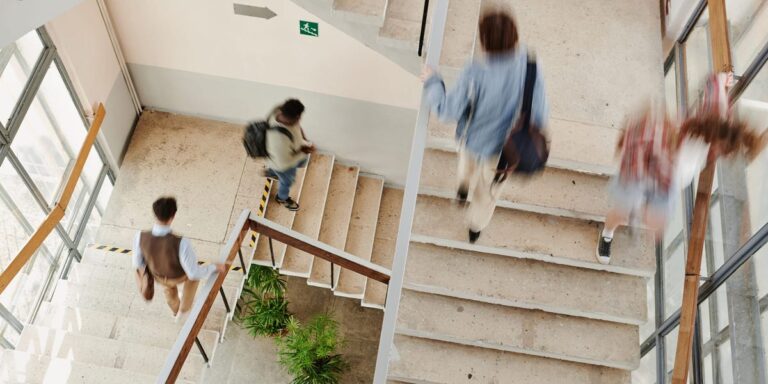- When my son was in his second year of high school, he wanted to drop out of school and study on his own.
- I supported him, and he continued to make films and win awards.
- He also didn’t want to go to college, but he still lived a successful life.
A few weeks before he turned 16, my oldest son brought up plans for us to drop out of high school on his upcoming birthday.
His father (then my husband) and I took it seriously. Our son had a strong inner drive, which I always supported. As a biologist trained in animal behavior and ecology — and someone fortunate enough to be a parent to them — I was open to parenting my two sons in unconventional ways. From before they were born, I hoped to help them connect with the wild human lineage that we tend to forget in our culture of screens, social media, and strict job expectations. That included co-sleeping and early potty training.
So, I was not surprised when my son said he wanted to drop out of school to learn on his own. That is what I have taught him all this time.
My child has always enjoyed different learning techniques.
Initially, my children thrived in an affordable Montessori preschool. However, after a few years in public school, their performance declined.
One day, I took them on a trial run at a new K-8 Expeditionary Learning school in our small town. Then, they rushed into the car, excited, and exclaimed, “Mom, we love it! Can we go to this school?”
Since then, they have been so happy that they hardly ever need help with their homework. In the meantime, they spend summers at a nature-based wilderness school rooted in social learning. The boys have experience as fire starters, knife makers, trackers, and camping alone in the wilderness at night as teenagers.
It was probably inevitable that my oldest son would feel increasingly constrained by his year and a half in public high school. By then, in his spare time, he had become one of the first kids we knew to build, fly and compete in drones. He had won numerous photography awards. Then, a book I shared with him, “The Teenage Liberation Handbook,” excited him as a sophomore. So when he asked to leave school that spring, it didn’t take us long to say, “Yes.”
He thrives outside of school
Almost immediately, he studied, practiced, and obtained a professional drone pilot’s license. In the meantime, he used his father’s workshop to build his first camper van. Soon after, he began taking short trips near his home to record with his drone.
We agreed that he would also do online learning through Kahn Academy, but at 23, he recently said to me, “Mom, I use it a lot less than you think.”
Eventually he moved out of our house and into a yurt in the backyard. For all intents and purposes, he was on his own. Within reason, we would approve of his travels and his growing independence.
My social life included a close group of friends with kids of the same age who grew up together. My son spent a lot of time with that group during his teenage years — camping, hiking, having epic Nerf fights, skiing, and taking road trips together.
My son continued to grow. Between the ages of 16 and 18, he began working as a filmmaker at the K-8 EL school he attended. He made several short documentaries highlighting the school’s approach to learning, including teaching indigenous students canoe-making skills. Later, he worked with tribes in northern Idaho to document their ancient stewardship of the land and rivers.
He then decided to skip college as well.
My son did well on his GED and SAT, but it didn’t mean much to him. He took a few courses in college but ultimately decided college wasn’t for him.
He now travels the world on his bike. He also uses his equipment and drone to make self-filmed adventure films. So far, these include last year’s hike around Iceland’s Ring Road, a bike ride from Canada to Mexico, and this spring’s solo ride across the UK in terrible weather. He’s currently on a ferry across the English Channel with his new friends, preparing to cruise through northern Europe this summer. He’s now getting paid for the videos he makes of his travels.
It’s there, in his latest films, that I see the exact same joy on my son’s face that I saw when he was a little boy. While I may worry about his safety as he rides thousands of miles through challenges (and boy, do I worry), he’s starting to come into his own. And that’s what I’ve always wanted for him.
Rachel Clark is a writer and author. Her work has appeared in Newsweek, Salon, Psychology Today, and Good Housekeeping. Her memoir, in progress, connects her experiences as a biologist, wife, and mother to the impact of coercive control on people and the planet. Contact us at www.rachelclarkauthor.com.


